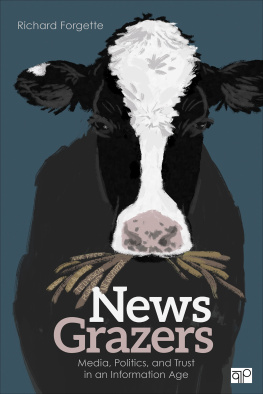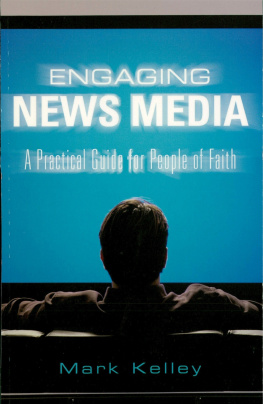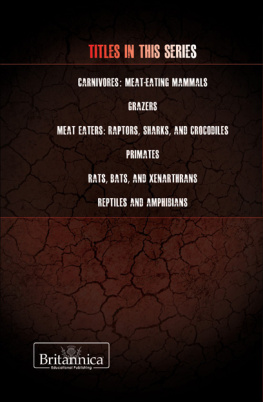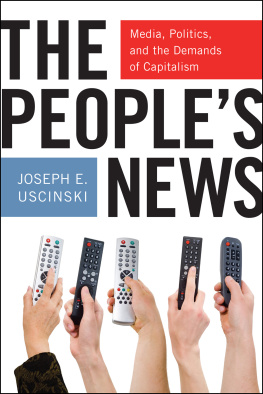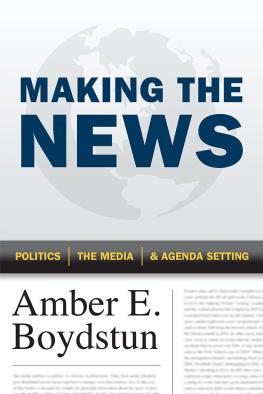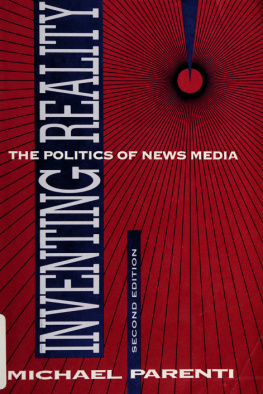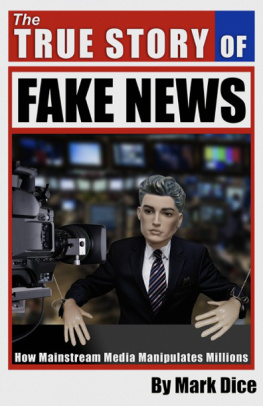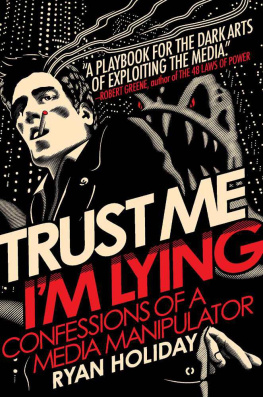Copyright 2019 by CQ Press, an imprint of SAGE Publications, Inc. CQ Press is a registered trademark of Congressional Quarterly, Inc.
All rights reserved. No part of this book may be reproduced or utilized in any form or by any means, electronic or mechanical, including photocopying, recording, or by any information storage and retrieval system, without permission in writing from the publisher.
FOR INFORMATION:
CQ Press
2455 Teller Road
Thousand Oaks, California 91320
E-mail: order@sagepub.com
SAGE Publications Ltd.
1 Olivers Yard
55 City Road
London, EC1Y 1SP
United Kingdom
SAGE Publications India Pvt. Ltd.
B 1/I 1 Mohan Cooperative Industrial Area
Mathura Road, New Delhi 110 044
India
SAGE Publications Asia-Pacific Pte. Ltd.
3 Church Street
#10-04 Samsung Hub
Singapore 049483
Names: Forgette, Richard, author.
Title: News grazers : media, politics, and trust in an information age / Richard Forgette.
Description: First edition. | Los Angeles : CQ Press, 2018. | Includes bibliographical references and index.
Identifiers: LCCN 2017037812 | ISBN 9781933116884 (pbk. : alk. paper)
Subjects: LCSH: Mass mediaPolitical aspectsUnited StatesHistory21st century. | Mass mediaPolitical aspectsUnited StatesHistory20th century. | JournalismPolitical aspectsUnited StatesHistory21st century. | JournalismPolitical aspectsUnited StatesHistory20th century. | Press and politicsUnited States.
Classification: LCC P95.82.U6 F74 2018 | DDC 070.4/49320973--dc23 LC record available at https://lccn.loc.gov/2017037812
Printed in the United States of America
This book is printed on acid-free paper.
Executive Publisher: Monica Eckman
Editorial Assistant: Zachary Hoskins
Production Editor: Laureen Gleason
Copy Editor: Jared Leighton
Typesetter: Hurix Digital
Proofreader: Wendy Jo Dymond
Indexer: Molly Hall
Cover Designer: Gail Buschman
Marketing Manager: Erica DeLuca
Preface
Chomp chomp chomp. Hello, fellow news grazer. I see you. Like a cow chewing its cud, you stand alone with your attention directed elsewhere consuming information, perhaps news. I see you. I see you at the red light with your head dropped to your phone. The light is green now, but you are not moving. I see you at a restaurant. You are sitting with others, but you are really watching the television in the corner of your eye. There you are at the airport. You are busily walking while reading the small text on your phone. Chomp chomp chomp.
Always in proximity to our digital technologies, we are changing our news consumption habits. We have become news grazers. This book is for us, fellow news grazers. Our news grazing is habitual, and we need to take better control of it. Our communication technologies make us feel more electronically connected with the world even as we partly disconnect from our immediate one. But a subtler result of our changing news consumption habits, our news grazing, is that we are changing what we consume. News is adapting to our distracted state of consciousness. This book is about this subtler but profound change that is affecting our perceptions of the political world, notably Congress and the media. I argue that news grazing is affecting our emotional responses to and trust in political institutions.
Public trust in Congress and the media has declined from its already low rates, and a premise of this study is that trust in government is essential for civil society and meaningful democracy. Measuring public trust in institutions is an important gauge of democratic governance. This book makes use of the great studies conducted by the Pew Research Center documenting Americans changing news consumption behaviors and our trust in government. I would like to thank Pew Research Center for enriching Americans political dialogue with the centers objective, timely, and important public opinion research. These useful Pew Research studies present compelling evidence of changing public attitudes relating to news and public trust.
The 2016 presidential election only magnified these changing behaviors and attitudes. Our shifting news consumption habits and our attitudes toward politicians and the media were on public display during and after the 2016 election. In the aftermath, the quickly evolving story of the Trump administration and its broader implications further underscore the significance of our changing news habits and attitudes. This book is not specifically about the 2016 election and its consequences; however, it may present some theoretical context that offers greater meaning to the election and its aftermath.
This book will certainly not be the last book (and definitely not the first) written on changing news consumption habits. However, it does synthesize the current state of knowledge produced by committed, objective, and truly insightful academic researchers who study Congress, the media, and their intersection. I would like to thank them for their work. I want to thank particularly my colleague and friend, Professor Jay Morris, who coauthored early papers with me on this topic. His work and ideas set the stage for this book.
Beyond thanking my colleagues broadly, I want to thank my family and friends specifically. I express my heartfelt love and thanks to Karen, Matt, Christie, Annie, Sarah, and Dorothy. Of course, this book would not have happened without them. Just like news grazing, they both distracted (but in the best of ways) and informed me. I dedicate this book to them. Without their help and support, it would not have happened.
Publishers Acknowledgments
CQ Press wishes to thank the following reviewers, from whom we received valuable feedback during the books development: Tyler Johnson (University of Oklahoma), Jason Martin (DePaul University Chicago Loop), Michael Parkin (Oberlin College), Jeffrey Peake (Clemson University), Anne Pluta (Rowan University), and Travis Ridout (Washington State University).



